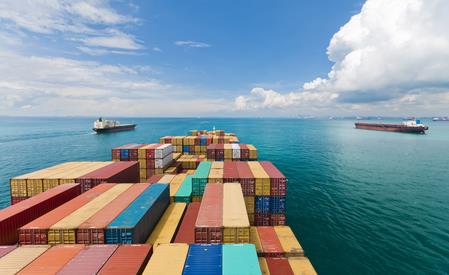
India's Trade Deficit Narrows To $26.49 Bn In August Despite US Tariff Turmoil
Exports in August declined to $35.1 billion from $37.24 billion in July amid the US tariff turmoil, triggering uncertainty in global markets, while imports fell to $61.59 billion from $64.59 billion in the previous month.
"Despite global uncertainties and trade policy uncertainties, Indian exporters have done well. It shows that the government's policy has paid off," Commerce Secretary Sunil Barthwal said.
Meanwhile, Commerce and Industry Minister Piyush Goyal has assured Indian exporters that the government is actively engaged in creating an enabling environment to help them navigate the challenges arising from rising trade tariffs.
The minister chaired a meeting with Export Promotion Councils and Industry Associations to chart a path forward amid shifting trade dynamics earlier this month.
In a major relief to exporters, the government has extended the export obligation period under "advance authorisation" for products falling under mandatory Quality Control Orders from 6 months to 18 months.
The order, issued earlier this month by the Directorate General of Foreign Trade (DGFT), issued at the behest of the Department of Chemicals and Petrochemicals, follows a similar adjustment for Quality Control Orders (QCOs) notified by other ministries, such as Textiles, where the period was also extended to 18 months.
This measure extends essential support and flexibility to exporters dealing with chemicals and petrochemicals across India. The move is poised to simplify trade processes and elevate the global market edge of Indian goods, the statement said.
The step was taken at a time when the Donald Trump-led administration has hiked tariffs on all imports coming into the US, triggering economic uncertainty in the global market. India has been singled out for one of the highest tariffs at a penal rate of 50 per cent, ostensibly for buying Russian oil.
Through the Advance Authorisation Scheme, importers can bring in duty-free raw materials for export production without adhering to QCOs for those inputs, ensuring a steady flow of export operations. A significant number of these authorisations cater to the chemical sector, emphasising the value of this policy shift.
The government remains committed to strengthening the chemicals and petrochemicals landscape through targeted strategies, acknowledging its pivotal role in economic growth. In 2024-25, the sector's export contributions reached an impressive level of $46.4 billion, which is 10.6 per cent of the total export value of the country, reinforcing its critical status, according to an official statement.

Legal Disclaimer:
MENAFN provides the
information “as is” without warranty of any kind. We do not accept
any responsibility or liability for the accuracy, content, images,
videos, licenses, completeness, legality, or reliability of the information
contained in this article. If you have any complaints or copyright
issues related to this article, kindly contact the provider above.


















Comments
No comment